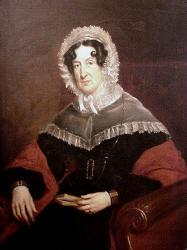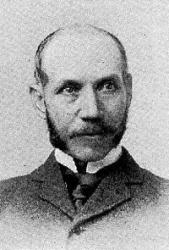
1812 - 1878 Person Name: Emma L. Toke Author of "Thou art gone up on high" in The Hymnal Mrs. Toke is the wife of the Rev. Nicholas Toke, Rector of Godington, Ashford, Kent.
--Annotations of the Hymnal, Charles Hutchins, M.A. 1872.
===========================
Toke, Emma, nèe Leslie, daughter of John Leslie, D.D., Bishop of Kilmore, was born at Holywood, Belfast, Aug. 9, 1812; married to the Rev. Nicholas Toke, Godington Park, Ashford, Kent, in 1837; and died in 1878. Mrs. Toke's early hymns were written in 1851, "at the request of a friend who was collecting for the Committee of the Society for Promoting Christian Knowledge", and they appeared in the S. P. C. K. Hymns for Public Worship, 1852, as follows:—
1. Glory to Thee, 0 Lord.
2. Lord, of Thy mercy, hear our cry. National Thanksgiving.
3. 0 Lord, in all our trials here. Saints' Days, General.
4. 0 Lord, Thou knowest all the snares. Lent.
5. 0 Thou, to Whose all seeing eye. Annunciation.
6. 0 Thou, Who didst with love untold. St. Thomas.
7. Thou art gone up on high. Ascension.
The most popular of these hymns are, "Glory to Thee, O Lord"; "O Lord, Thou knowest all the snares"; and "Thou art gone up on high." These hymns as a whole are simple and pleasing. They seldom rise into passionate fervour, and are weakened in several instances by faulty construction. They have been widely adopted in Great Britain and America. Another series of hymns by Mrs. Toke was contributed to the Sunday School Liturgy . . . and Hymn Book, arranged by the Rev. B. Judd, B.A., Incumbent of St. Mary's, Halifax. Halifax, F. King, 1870.
These hymns have failed to attract attention, although in literary merit they fall little short of her earlier efforts. They are:—
8. Jesu! by Whose Almighty Grace. St. Andrew.
9. Lord God, the strength and stay of all. General.
10. Lord of all power and might. General.
11. Lord of light and life. St. Mark.
12. O Father, Whom in truth to know. Saints Philip and James.
13. 0 God of comfort, Thou alone. St. Barnabas.
14. O God of mercy, chill and dark. St. John Evangist
15. O God, the strength and stay of all. General.
16. O God, upon this solemn day. St. Matthias.
17. O Thou, Who didst through heavens, &c. Puri¬fication Blessed Virgin Mary
18. The joyful day at last is come. Easter.
19. This is the day when Jesus Christ. Christmas.
20. Upon this sad and solemn day. Good Friday.
21. We bless Thee, Lord, for that clear light. Conversion St. Paul.
In addition to these hymns Mrs. Toke rewrote and expanded some of her earlier compositions. In their new form, however, they are almost unknown.
-- John Julian, Dictionary of Hymnology (1907)
Emma Leslie Toke




